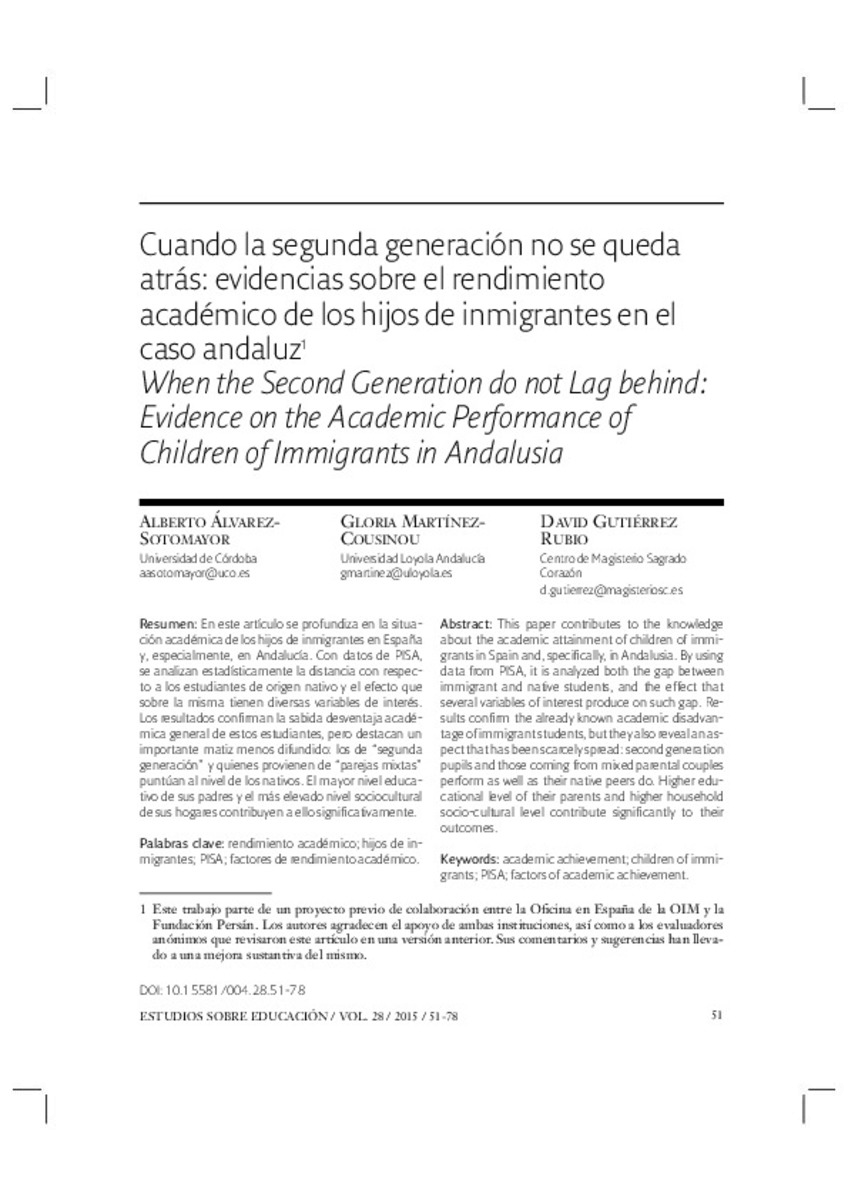Cuando la segunda generación no se queda atrás: evidencias sobre el rendimiento académico de los hijos de inmigrantes en el caso andaluz
Other Titles:
When the Second Generation do not Lag behind: Evidence on the Academic Performance of Children of Immigrants in Andalusia
Keywords:
Materias Investigacion::Educación
Rendimiento académico
Hijos de inmigrantes
PISA
Factores de rendimiento académico
Academic achievement
Children of immigrants
Factors of academic achievement
Publisher:
Servicio de Publicaciones de la Universidad de Navarra
Citation:
Álvarez-Sotomayor, Alberto; Martínez-Cousinou, Gloria; Gutiérrez-Rubio, David. (2015), “Cuando la segunda generación no se queda atrás: evidencias sobre el rendimiento académico de los hijos de inmigrantes en el caso andaluz"", ESE. Estudios sobre Educación, 28, pp. 51-78.
Statistics and impact
0 citas en

0 citas en

Items in Dadun are protected by copyright, with all rights reserved, unless otherwise indicated.







